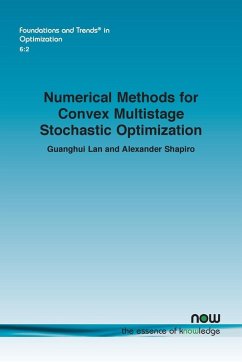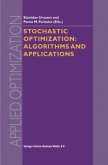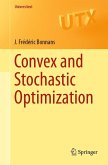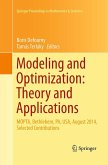Optimization problems involving sequential decisions in a stochastic environment were studied in Stochastic Programming (SP), Stochastic Optimal Control (SOC) and Markov Decision Processes (MDP). This monograph concentrates on SP and SOC modeling approaches. In these frameworks, there are natural situations when the considered problems are convex. The classical approach to sequential optimization is based on dynamic programming. It has the problem of the so-called "curse of dimensionality", in that its computational complexity increases exponentially with respect to the dimension of state variables. Recent progress in solving convex multistage stochastic problems is based on cutting plane approximations of the cost-to-go (value) functions of dynamic programming equations. Cutting plane type algorithms in dynamical settings is one of the main topics of this monograph. Also discussed in this work are stochastic approximation type methods applied to multistage stochastic optimization problems. From the computational complexity point of view, these two types of methods seem to be complimentary to each other. Cutting plane type methods can handle multistage problems with a large number of stages but a relatively smaller number of state (decision) variables. On the other hand, stochastic approximation type methods can only deal with a small number of stages but a large number of decision variables.
Hinweis: Dieser Artikel kann nur an eine deutsche Lieferadresse ausgeliefert werden.
Hinweis: Dieser Artikel kann nur an eine deutsche Lieferadresse ausgeliefert werden.








